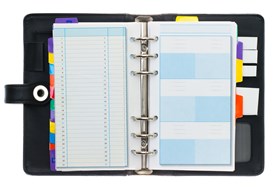For many young people, the transition from one stage of schooling to another can be daunting. For young people with autistic spectrum disorders and associated difficulties, it can be even more so. The alien environment offers a variety of changes that, without the proper support and preparation, can be particularly challenging to a young person on the spectrum. However, there are ways in which this transition can be eased.
Changes/differences
One of the biggest differences is that specialist schools tend to offer a primary model, one in which the student stays in the same place but the teachers move around. This changes in a college environment as students are expected to move to different rooms, meaning they have a greater degree of independence. It’s really important that the student is shown where the rooms are in advance and has details of what will happen, such as:
- Who is the teacher?
- Where will they sit?
- What equipment will they need to bring?
Prompt cards can be good for this or information pages in a Filofax.
There will be changes in the curriculum which can be disconcerting for a young person. To prepare them for this make sure they are aware of the different subjects they will be studying beforehand.
Break and lunch times will also be different as it is more likely that there will be a canteen rather than a dining hall. Choice can be hard so giving the student a list of meals available will help with this. Some colleges offer clubs at break and lunchtimes so getting information about this can also be helpful.
Adjustment
Most specialist colleges offer a key worker to students. It’s important the student knows how to access this person and what to do/where to go if they encounter something that confuses them. Giving students a book that they can write things in to share with the key worker can work well and setting specific times when they can go and debrief the key worker about arising issues.
Challenges
It’s a big challenge to meet lots of new students and staff, as well as negotiating your way around a new building. It can be helpful to have pictures of the new setting, as well as pictures of the staff members. Having a clearly defined transition plan helps. This should include visits to the college with the time spent there increasing on each visit. The Autism Education Trust website offers a free and useful transition planner.
Expectations of students
The key is to try and give as much information to the student to keep anxiety at bay. Having a plan for where the student can go if they are anxious is also important. Everything becomes much easier to manage with a plan! You can also check to see if the college uses a buddy system as this can be helpful for settling in.
Advice to parents
Get to know the staff and make sure that they have as much information on your child as possible. Include any sensory issues, likes and dislikes, any issues around eating and what is likely to cause stress and how you manage this. Again, having a plan to manage things is far better than crisis management. Make sure they know how to contact home if they need to either via a public phone or a mobile. There are some really good apps for mobiles to help with staying organised if the student has a personal phone.
It may sound very basic but make sure the student is comfortable and has had enough sleep and breakfast before accessing college; this can sometimes make or break a day!
It is also useful to debrief at the end of the day, ask your child what’s gone well and what’s not gone so well. Don’t forget that relaxing and having some down time is as important as accessing learning, but try and incorporate opportunities to practice skills learned in college.
By implementing the best possible transition plan for each young person, it gives them the best chance to flourish in further education and fulfil their potential.
For more details on Aspris Children's Services, please call 0118 970 8068 or click here to make an enquiry.